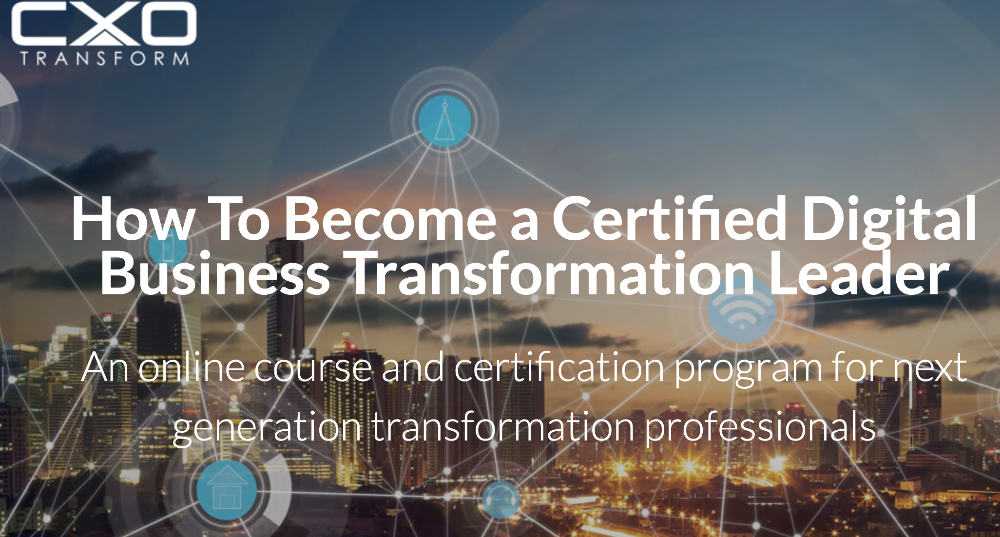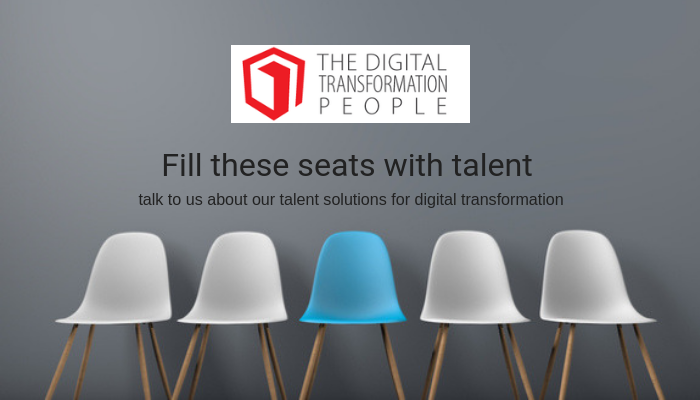When considering what kind of talent you need for Digital Transformation it helps to start with a definition of what it means. Here’s mine; Digital Transformation, in essence, is what you need to do to make your organisation fit for purpose in what’s being called the 4th Industrial Revolution.
The convergence of digital technologies across all industries, science and technology is accelerating the rate of change exponentially. It’s an unnerving situation for any business or institution finding itself in a vortex of accelerating competitive forces, rapidly changing customer expectations and a workforce suddenly having to deal with adopting new ways of working as the organisation has to evolve into something entirely new.
Gone are the days of command and control. Leaders now have to lead with speed and transparency that engages both their customers and the workforce. They lead by consent with the tools of inspiration, leadership and alignment to values both within the organisation, personally and with society as a whole. It’s a wild horse that cannot be controlled by force but needs to be tamed with empathy, assurance and authenticity.
Digital transformation is not about digital technologies per se; these are the catalysts that have triggered the rate of change and created the opportunities that are there to be grasped. The urgency is that change is coming regardless of whether you manage to harness opportunity or not, for if you fail to do so then others will. The ogre of digital disruption has long been the topic of board room conversation yet many are struggling to set in motion the changes that are required to adapt.
We now know that 70% of digital transformation and in fact business change initiatives fail. Quite how this is measured is still unclear to me but the theme is true. Most organisations have dealt with the first wave of disruptive forces by ramping up the barricades and launching digital initiatives that will in the short term increase efficiency, reduce costs and by some measure be successful.
Automation is an easy win and one that will demonstrate rapid ROI that will keep the board happy for now but it doesn’t deal with the need to transform the organisation into the agile, efficient and engaged organism it needs to become.
Much talk nowadays is of innovation – whether incremental improvements made at the level of business units, or specialist innovation groups or as required, innovation that will fundamentally improve the competitive capabilities of the organization itself.
For the most part innovation and certainly incremental innovation whilst delivering efficiency and efficacy gains in the short term are sticking plasters. They’ll hold the sandcastles a while longer but the incoming tide will eventually undermine their integrity unless something more fundamental is achieved. Innovation must seek new ways of value creation in a way which harnesses the new realities of digital technologies, platform business models, the power of the network, collaborative working and the transparency and authenticity of leadership required to resonate with an engaged workforce. It requires a focus and a sense of purpose to overcome barriers and achieve advances in value creation that only the aligned utilisation of resources will deliver.
Innovation requires that the organisation understands it’s ‘why’. What’s its purpose and for whom does it seek to create value. The ‘how’ requires organisational change and the adoption of new ways of working where there is a culture of autonomy, collaboration and freedom to experiment to achieve a higher purpose. The organisation must tap into the human spirit of an engaged workforce operating in an environment of shared values and purpose aligned to a common cause.
Innovation and digital transformation at its core are above all a human-centred endeavours and so organisational design, culture and mindset are increasingly recognised as the key elements of success for any organization seeking to remain viable in this new digital age.
So to the question of talent; Digital transformation is not something that can be done, executed or delivered by a 3rd party consultancy. It’s not something to be thrust upon the organisation as a discrete piece of work rather it is to transform into a new way of being and this can only be done from within. Rapid and adaptive, responsive to the environment and caring of its value propositions. It’s something you become and so, in essence, it’s the way your people become. How they work, learn and are empowered to care, experiment and change. Equipped with the tools of design thinking, Lean, agile and an organisational design fit for purpose, your people become the transformers focussed always on the art of the possible and aligned with the values and purpose of your organisation. Exceptional leadership is required where functional and hierarchical barriers to rapid communication and collaborative working are dismantled and your people are coached, empowered and enabled to adopt new ways of working.
The real talent required for digital transformation are people who ‘get it’, can see the bigger picture and can coach and enable the talent you already have to leverage their domain knowledge, customer perspectives and passion to deliver what digital technologies and new ways of working can deliver. Practically speaking this starts at the leadership level as leaders engage with knowledge and thought leadership to understand the context of digital transformation. Leaders must first learn to create an environment for new ways of working to flourish. Then across and through the organisation, specialist coaches, scrum masters, facilitators and specialist practitioners distributed across the organisation help with its reorganisation and adoption of new working practices that will deliver the flexibility, agility and authority to truly transform.
As for technology skills, yes expertise in AI, automation and any number of other new technologies are required and these can be bought in from specialist vendors and recruiters. They are however transitory in nature and real sustainability will be achieved only if the focus is on nurturing the truly human attributes of EQ, creativity, imagination and confidence to experiment and explore in line with the aligned objectives of the organization itself.
The Digital Transformation People is a platform designed to connect you with the knowledge, talent and expertise required to enable effective digital transformation. We’ve nurtured relationships and built talent pipelines around the very people who can help you transform your organisation. These are the people who can lead, teach and enable your people to deliver your digital transformation. Speak to us and we’ll help you to define and engage the talent you need to succeed.
Interim & executive search; people solutions for digital transformation from The Digital Transformation People.
Article by channel:
Everything you need to know about Digital Transformation
The best articles, news and events direct to your inbox









